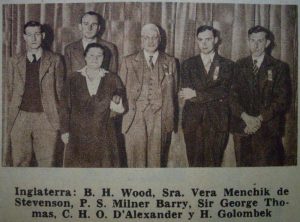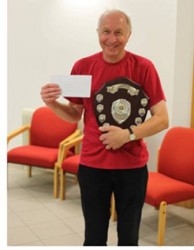Regular visitors to this site must be wondering what has happened to Broadstairs’ adopted GM, Wei Yi. It’s so long since we heard from him that he must be at least 17 by now. Well, he is actually 18 which by chess standards is positively ancient. However, remember that he reached 2700 at a younger age than Magnus Carlsen and with his most recent rating 2746, he is 17th in the world rankings. Currently playing in the Danzhou Super-GM tournament, after four rounds he is the sole leader with 3/4. After two opening games with the black pieces, he had white against Ruslan Ponomariov in round 3, who was soon being bamboozled by a number of pawn sacrifices as Wei Yi cleared a way for his rook.
White: Wei Yi (2746) Black: Ruslan Ponomariov (2712)
8th Hainan Danzhou 2017
Of course, a recurring problem at super GM chess tournaments is the high percentage of draws. In order to avoid this, the organisers have instigated some new initiatives to promote positive play. According to Chess.com, “the tournament has some of the toughest anti-draw rules you’ll ever witness – no draw offers are allowed (only theoretical draws or with the agreement of the arbiter), while if the players draw by repetition within 15 moves they have to start the game again. If they draw by repetition in 15 moves again both players lose! Nevertheless, we’ve only seen three wins in 15 games.” We shall have to wait and see what effect the new rules have at the end of the tournament.




